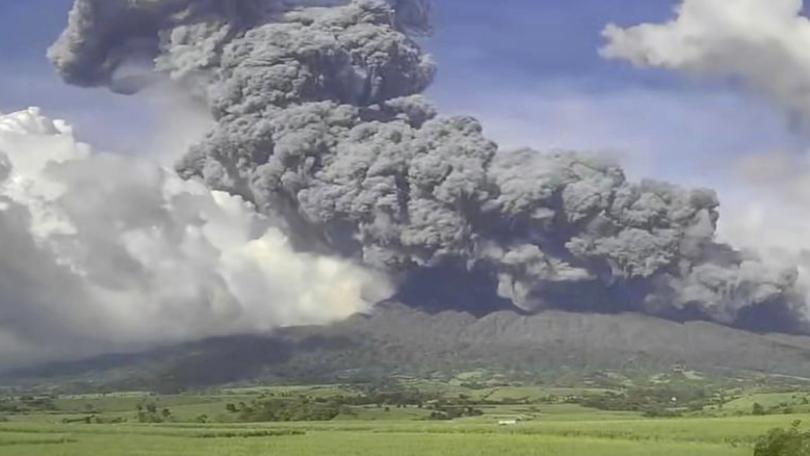Kanlaon volcano: ‘State of calamity’ declared as over 40,000 people affected by eruptions in Phillipines
A ‘state of calamity’ has been declared and at least 16,000 people have been displaced, following ongoing eruptions from the Kanlaon volcano.

A growing humanitarian crisis has left at least 16,000 people displaced following ongoing eruptions from the Kanlaon volcano in the Phillipines.
The booming volcano in the Negros Occidental region has left government officials struggling to provide assistance for the flood of people who have had to flee the massive and ongoing eruptions this months.
A report has been released from the National Disaster Risk Reduction and Management Council (NDRRMC) stating a total 43,970 individuals or 10,784 families in 26 barangays in Central and Western Visayas were affected by the eruption of Kanlaon Volcano.
Sign up to The Nightly's newsletters.
Get the first look at the digital newspaper, curated daily stories and breaking headlines delivered to your inbox.
By continuing you agree to our Terms and Privacy Policy.The numbers gathered include 4,278 families or 13,748 persons currently staying in evacuation centres while 2,366 individuals or 694 families have opted to stay with relatives.
Several cities have declared the area’s affected as in a “state of calamity” as task force Kanlaon ordered the completion of the mandatory evacuation within a six-kilometre permanent danger zone to ensure the safety of the residents.

The Office of the Civil Defense Western Visayas stressed that the potential for a violent eruption poses a significant threat to life and property.
“Residents who have not yet evacuated are urged to comply with the order to avoid any risks associated with possible re-eruptions or a worst-case scenario of a violent eruption,” the agency said.
Emergency services and police and army personal have established entry and exit points within the danger zone with displaced persons allowed entry and exit within the extended safety zone only from 6am to 4pm.
Over the past 24 hours, the Philippine Institute of Volcanology and Seismology (Phivolcs) recorded 12 volcanic earthquakes in the Kanlaon Volcano.
The eruptions have also generated 6,535 tonnes of sulfur dioxide flux and emitted 75 meters tall plume of smoke and ash.

